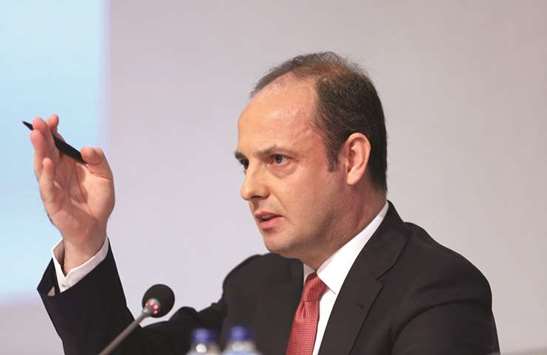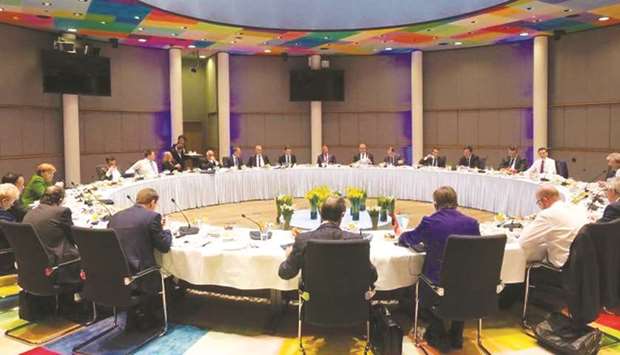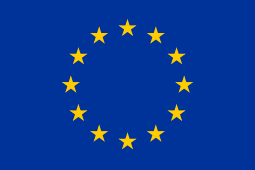When I pulled my Hyundai out of the driveway two weeks ago and headed 450 miles north, it was only for a short vacation, but I was still excited to be leaving the Beltway after a confusing year for foreign-policy wonks. Freed from the obligation to make sense of the growing dysfunction of the United States and its rippling effects on the world, I took long runs on country roads, ate too much ice cream, lazed on the beach with my wife and young daughters, read a novel, and celebrated a birthday.
I returned to the office a few days ago and almost wish I hadn’t. The weirdness of 2018 continues. Upon reconnecting, I discovered that the odious former president of Iran, Mahmoud Ahmadinejad, tweeted in support of LeBron James (he also likes Michael Jordan), Toto covered Weezer, and the government of Saudi Arabia freaked out at Canada. Not Iran or Qatar, but Canada… the Great White North. The place that has bestowed such gifts to the world as John Candy, poutine, Wayne Gretzky, the Montreal bagel, and the 55-yard line.
Like most countries, Canada does have darker aspects. The way Canadians treated what they now refer to as the First Nations was horrific, for example—although they recently apologized and accepted responsibility for the near-destruction of those cultures. And even when Canadians are angry at you, they tend to be unfailingly polite about it.
So, what is the Saudi beef? Why have they thrown the Canadian ambassador out of the country, halted Saudi flights to Toronto (a lovely airport), and told anywhere between 7,000 and 16,000 Saudis enrolled in Canadian universities that they can’t go back to school in a few weeks? A tweet. More specifically, last Friday the Canadian foreign ministry tweeted: “Canada is gravely concerned about additional arrests of civil society and women’s rights activists in #SaudiArabia, including Samar Badawi. We urge the Saudi authorities to immediately release them and all other peaceful #humanrights activists.”
That’s it. The Canadian government did not impose sanctions, offend Islam, or make common cause with the Houthis in Yemen. As anyone with a passing interest in international affairs knows, Ottawa has publicly positioned itself—often in contrast to the United States—as a strong voice in defense of human rights. This is particularly the case under Liberal Party-led governments such as the one under Prime Minister Justin Trudeau, and Canadian Foreign Minister Chrystia Freeland has been (politely) forceful in her defense of a rules-based and liberal international order.
According to their Saudi counterparts, by expressing concern for the plight of peaceful activists in the kingdom, Canada’s diplomats were in egregious violation of Saudi Arabia’s sovereignty. This is the kind of response that one might expect from say, Egypt—though even the Egyptian leadership, which loathes civil society, activists, and their international supporters with great passion, would not throw an ambassador out of the country and cancel the scholarships of thousands of university students.
There are various theories to explain the Saudi reaction to Canada’s tweet. Some analysts have suggested that the episode is another example of Saudi Arabia’s reckless foreign policy under Crown Prince Mohammed bin Salman. Others see it as another warning to Saudis that the only reforms in the kingdom are those that the crown prince has articulated, and they are at their peril should Saudis demand more. Both explanations are plausible—and either way, Mohammed bin Salman comes out looking every bit the impetuous, petty, immature, tyrant that his critics say he is.
Arab leaders have some good reasons for responding poorly to activists and nongovernmental organizations that international supporters of these individuals and groups tend to overlook. But rounding up people who peacefully express a different vision of society from the Saudi leadership is weak. Not just weak in a vague moral sense, but as a basic description of the government’s political standing. General rule: If a leader is arresting people who disagree with them, it is a sign that this leader is well aware of a significant gap between the stories the government is telling its citizens about how good life is under its benevolent leaders and how people are actually experiencing it. The Saudi women in jail right now had to be arrested, because if they weren’t silenced, there would be an ever-increasing risk that they would expose the emptiness of the government’s sunny narrative about the future. Coercion of this sort is a demonstration of brute force and political weakness.
For all the Saudi government’s declarations about the “new Saudi Arabia” and how the country is moving forward thanks to the crown prince’s reform program, it rings hollow against the background of jailed peaceful dissenters. The Saudis will argue that all the Western reporting and analysis is wrong—the people arrested were in communication with foreign countries and thus trying to undermine the Saudi state. It is a claim that is both tiresome—because it comes from the script every foreign ministry reads anytime their governments want to repress activists—and revealing. There is no foreign conspiracy, of course. It is the dodge of a nervous Saudi leadership, fearful that its people will discover its inability to deliver on its promises.
The Saudis and their supporters often complain that they get a bad rap in Washington. I am sympathetic to this claim. Sure, Crown Prince Mohammed bin Salman got some terrific personal press on his barnstorm through New York, Washington, Los Angeles, and Silicon Valley last spring—but news coverage of Saudi Arabia at around the same time was demonstrably negative. With good reason, of course. In November 2017, the Saudis orchestrated the brief resignation of the Lebanese prime minister—surely one of the stranger diplomatic episodes in the Middle East ever—and then there was the terrible (and ongoing) humanitarian toll of Saudi Arabia’s military intervention in Yemen. The Saudi-led blockade of Qatar, meanwhile, seems to have been a pointless exercise in showing Doha who is the big dog in the Gulf.
Yet the negative coverage ignored the middle ground; complications and shades of gray are typically saved for stories other than Saudi Arabia. The war in Yemen has been a foolish blunder, but hardly anyone mentions the brutality of the Houthis. The Qataris may be victims of Saudi, Emirati, Egyptian, and Bahraini scheming, but they are not innocent victims. The crown prince is hardly the reformer that he has proclaimed himself to be, but he does seem to enjoy genuine support at home.
Still, whatever beating the Saudis are taking over the war of words with Canada, it is entirely of Riyadh’s own making and well deserved. One is hard-pressed to truly understand what officials at the Royal Court are thinking, beyond taking a cue from the Trump administration and declaring, “We are Saudi Arabia, bitches.” The Saudis really can’t have it every which way: posturing as “reformers,” tossing activists in jail, and then taking umbrage when people dare criticize them for not actually reforming.
The crown prince decided to pick a fight with the wrong country. Not because Canada is powerful and the Saudis are dependent upon them, but rather because Ottawa has taken a stand on the straightforward principle that peaceful dissent is not a crime. In their overreaction, the Saudis have decided to flaunt their own foolishness and feebleness. Instead of railing against Ottawa, Riyadh should apologize for its rash behavior. That’s what the Canadians would do.










